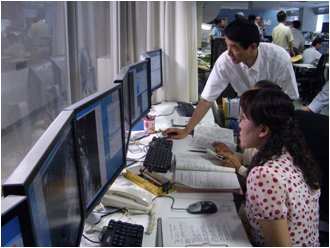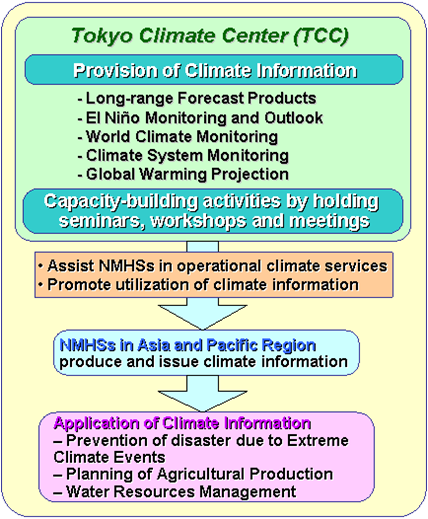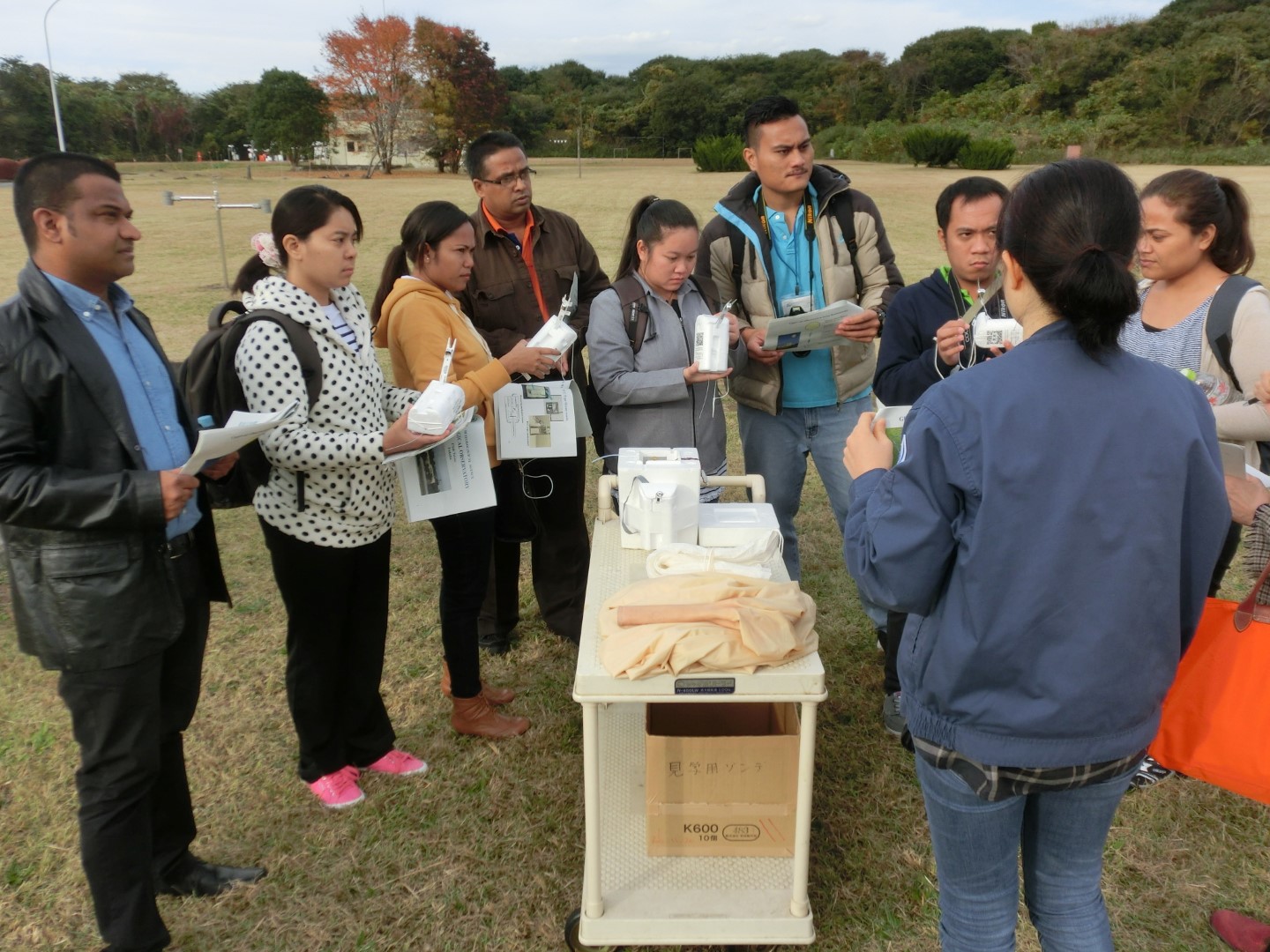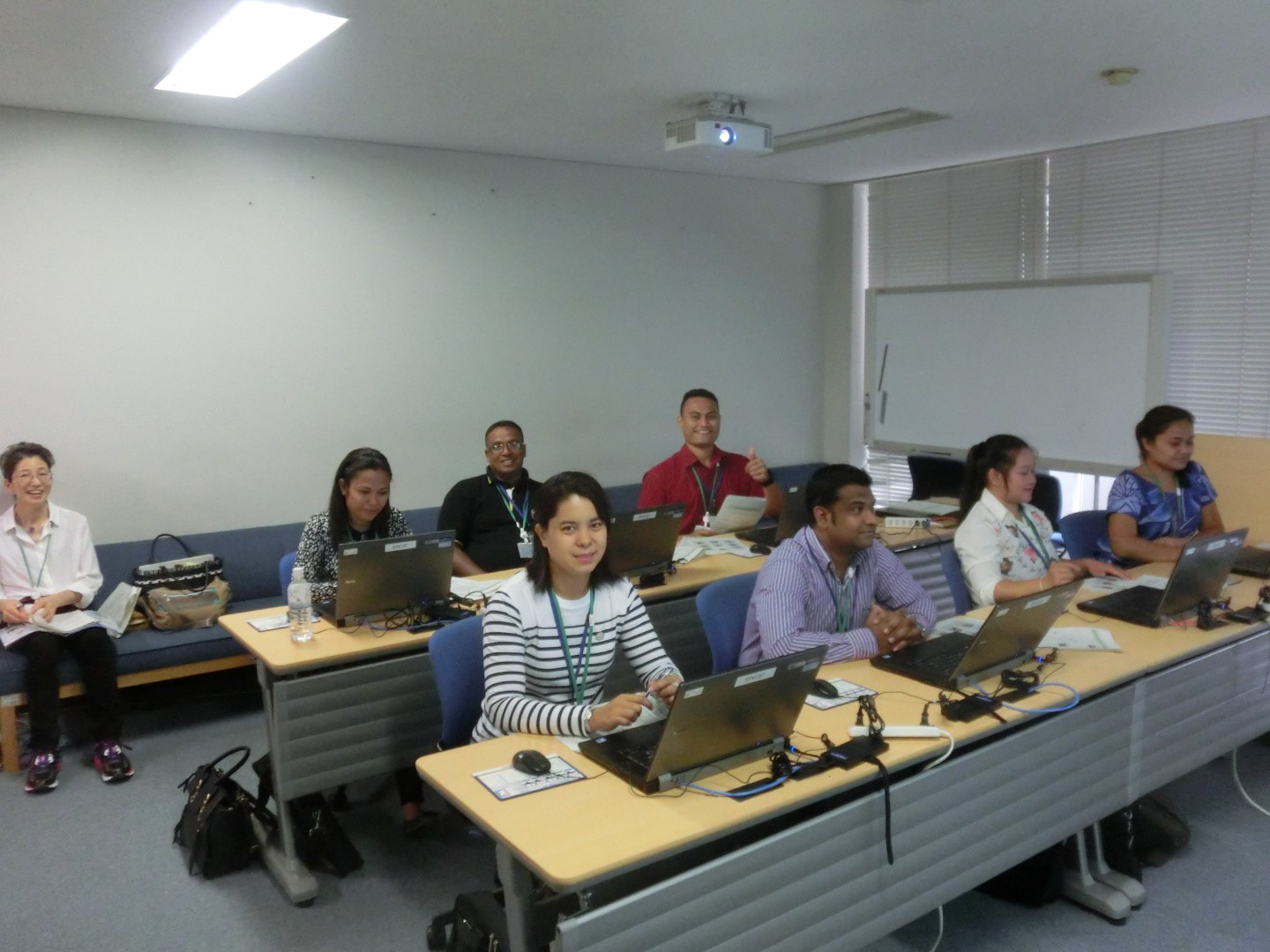|
Since the atmosphere has no national borders, international cooperation and coordination is essential for the development of worldwide meteorological activities.
JMA devotes consistent efforts to international cooperation through multilateral and bilateral channels alike, and has established procedures to engage in cooperative activities with many NHMSs and international organizations.
|
|
The World Meteorological Organization (WMO) facilitates international cooperation in the meteorological field to coordinate, standardize and improve world meteorological activities.
Japan is an active member of the organization, and successive Permanent Representatives of Japan with WMO (a role to which the Director-General is designated) have long served as members of the Executive Council by election of the Congress.
JMA is a core member in the implementation of a number of scientific and technical WMO programs, with many experts contributing to Technical Commissions and associated working bodies of the organization.
JMA also operates a number of WMO regional and global centers for the WWW (World Weather Watch) Programme and others.
JMA is also actively involved in international programs organized by the Intergovernmental Oceanographic Commission (IOC) of the United Nations Educational, Scientific and Cultural Organization (UNESCO), the International Civil Aviation Organization (ICAO) and others. |
||||||||||||||||||||||||||||||||||||||||||||
|
||||||||||||||||||||||||||||||||||||||||||||
| JMA is responsible for the analysis and forecasting of tropical cyclones (TCs) in the western North Pacific and the South China Sea (0º - 60ºN, 100ºE - 180º) in its role as the Regional Specialized Meteorological Center (RSMC) Tokyo - Typhoon Center, one of the six RSMCs responsible for TC forecasting within the framework of the World Weather Watch (WWW) Programme run by the World Meteorological Organization (WMO). About 25.1 (30-year average from 1991-2020) TCs are generated every year in this area, and some causing serious damage to the affected regions. Against this background, the RSMC Tokyo - Typhoon Center issues vital information on TCs such as analysis and forecasts eight times a day in order to assist in the disaster prevention activities of National Meteorological and Hydrological Services (NMHSs) in the area, especially those of ESCAP/WMO Typhoon Committee members. The Center's activities also include monitoring of data exchanges among members, issuance of publications such as annual reports and technical reviews, and provision of on-the-job training seminars held annually at JMA Headquarters. |
 Area of responsibility of the Center |
 On-the-job training at JMA's operation room |
|
Recently, extreme climate events have caused a large number of serious disasters such as droughts and floods around the world, creating a significant social and economic impact.
To mitigate the effects of such disasters, National Meteorological and Hydrological Services (NMHSs) play an important role in providing the general public and decision-makers with monitoring results and timely predictions of climate variability.
JMA established the Tokyo Climate Center (TCC) to meet the requirements of NMHSs in this area and to contribute to the climate services they provide in the Asia-Pacific region.
TCC's mission is to assist with the climate information services of NMHSs in the Asia-Pacific region with the aim of mitigating climate-related disasters and contributing to sustainable development. The Center's two major activities involve providing basic climate data and products to NMHSs through its website and assisting with capacity building at NMHSs in the same region. To promote climate services for the benefit of individuals, organizations and countries around the world, WMO plans to establish an international collaborative framework composed of Global Producing Centers, Regional Climate Centers and NMHSs to facilitate climate services. TCC is committed to contributing to such WMO initiatives, and in June 2009 was designated as one of the first WMO RCCs along with China's Beijing Climate Center. |  Activities of the Tokyo Climate Center |
|
Technology transfer to developing countries in the field of meteorology is essential not only for the modernization of meteorological services in those countries but also for the promotion of international meteorological activities.
JMA has been providing expert services and training programs to developing countries for decades. In particular, the series of Japan International Cooperation Agency (JICA) training courses in meteorology has received more than 300 meteorologists from National Meteorological Services in developing countries since 1973. Toward the implementation of Japanese government aid programs in the meteorological field, JMA provides a variety of technical support in cooperation with JICA and other national authorities. |
 |
 |
| JICA Training Course in Meteorology |